December 27, 2024 | 09:02 GMT +7
December 27, 2024 | 09:02 GMT +7
Hotline: 0913.378.918
December 27, 2024 | 09:02 GMT +7
Hotline: 0913.378.918
With a long history, vast rural areas stretching from North to South, and diversity in resources and climate, Vietnam has large potential to develop unique, high-value OCOP products that not only meet domestic needs but can also promote exports to overseas.
After more than 6 years of implementing the One Commune One Product (OCOP) program, to date, Vietnam has more than 14,000 OCOP products from nearly 8,000 entities. Vietnam's OCOP products are gradually approaching the market, awakening the potential and advantages of regions to develop the rural economy. Among them, there are Nipa palm honey products from Vietnam Nipa Corporation (Vietnipa).
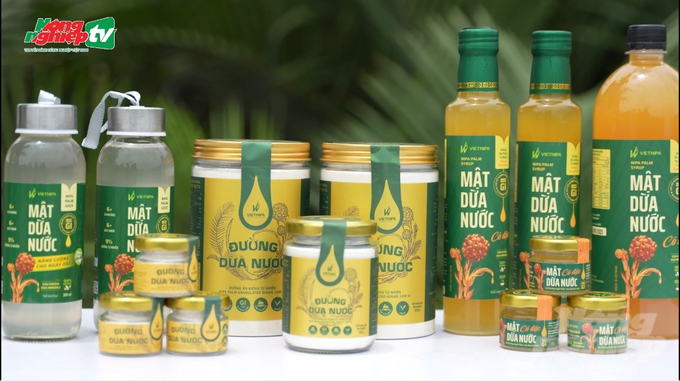
Vietnipa has three product lines, including Nipa palm honey, concentrated Nipa palm honey, and Nipa palm sugar. Photo: VAN.
Vietnipa has three product lines, including Nipa palm honey, concentrated Nipa palm honey, and Nipa palm sugar. Sharing with Vietnam Agriculture Newspaper, Mr. Phan Minh Tien, CEO of Vietnam Nipa Corporation (Vietnipa), said that the company currently has two products achieving 4-star OCOP certification from Ho Chi Minh City, which are Nipa palm honey and concentrated Nipa palm honey.
"Just last month, the company's Nipa palm sugar product was also assessed by the Council as basically meeting the criteria of 4 stars or higher. With 4-star OCOP certification, we received much support on the product development path," shared the CEO of Vietnipa.
According to Mr. Phan Minh Tien, OCOP certification is a plus point when offering products to supermarket systems. For OCOP-certified products, supermarket systems will more easily accept them because this is also the policy of Ho Chi Minh City and Vietnam to support OCOP products. From there, the company's products could penetrate the market better, covering the supermarket system. Thanks to the effectiveness of OCOP products, Vietnipa can cover large supermarket systems like OCOP Mart, BigC, Lotte, and Aeon.

Mr. Phan Minh Tien, CEO of Vietnam Nipa Corporation (Vietnipa). Photo: VAN.
In addition to support in terms of market, OCOP products also bring media effect to the business. Through media communication about specialty agricultural products of Can Gio district in particular as well as Ho Chi Minh City in general, it contributes to promoting tourists and people to know more about products from Nipa palm. From there, Vietnipa's products can be more easily accessible to domestic customers as well as foreign customers.
With the effectiveness OCOP products bring to Vietnipa, the business has orientations and preparations to develop OCOP products in the domestic market as well as bring them to foreign markets.
Sharing about this issue, Mr. Phan Minh Tien said, "Vietnipa clearly defines to divide OCOP product development into two phases. The first phase is to develop products in the domestic market, and the second phase is to export."
Explaining this division, the representative of Vietnipa said that the company's products can be said to be the first organic Nipa palm products in Vietnam, so Vietnamese customers do not know much about them. Thus, in the first phase, the company focuses on building coverage in the Vietnamese market to bring quality products to domestic consumers first.
"Additionally, when mentioning Nipa palm trees, consumers in the Central or Northern regions, let alone foreigners, also do not know much about them. Therefore, we need to understand insights and marketing methods to convince people who do not know about Nipa palm or Nipa palm products, such as Nipa palm sugar, to use our products. From there, we have a lesson to be able to go international better," added Mr. Tien.
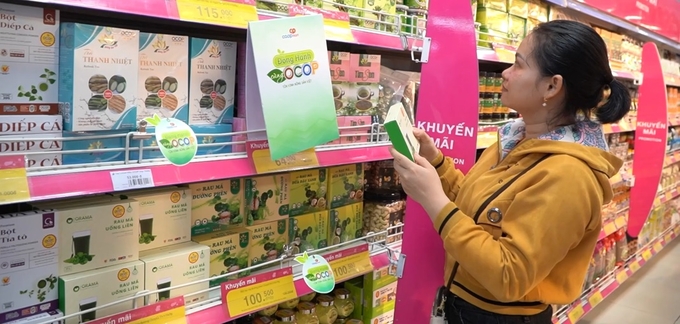
For OCOP-certified products, supermarket systems will more easily accept them because this is also the policy of Ho Chi Minh City and Vietnam to support OCOP products. Photo: VAN.
To conquer the domestic market, in this phase, Vietnipa has basically covered supermarket systems, retail channels, and e-commerce channels so that consumers know about products from Nipa palm, including Nipa palm honey and Nipa palm sugar. The business also has more models to support communication, creates more revenue sources through F&B model chains selling products from Nipa palm meat, as well as combines with tourism.
Through this, Vietnipa is able to create a market as well as understand how to do marketing communication in the Vietnamese market to stand firmly in the Vietnamese market first and then go to the international market. Along with that, there need to be preparations.
Regarding Vietnipa's preparations, Mr. Phan Minh Tien said that the business first must build standards. Vietnipa has obtained ISO 22000 and HACCP standards, and especially organic standards. The business is very honored to achieve international organic standards, specifically those of Europe, the US, and Japan for Nipa palm products. That is the premise for Vietnipa to build standards as differences when going to the international market.
At the same time, Vietnipa also received support from the governments to participate in international fairs such as Thai Fest, Japanese Fair, etc. That is an opportunity for the business to gradually offer its products to foreign markets, creating momentum for better export.
With the benefits and advantages of OCOP products, as well as proper product development orientations and preparations, Vietnamese OCOP products will have a lot of potential to conquer foreign customers in the coming time, thereby contributing to raising the value of Vietnamese agricultural products.
Translated by Thu Huyen

(VAN) On December 24, Deputy Prime Minister Tran Hong Ha signed Decision No. 1639/QĐ-TTg approving the project on the development of biotechnology in the field of environmental protection.
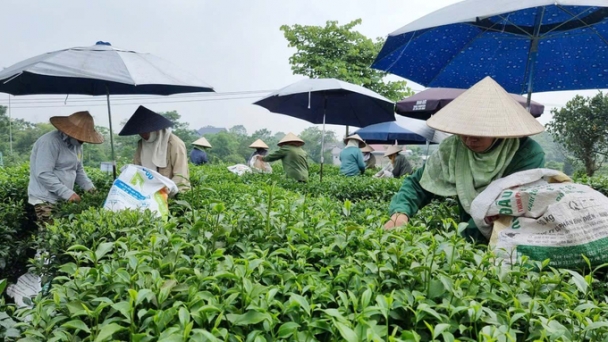
(VAN) Vietnam's tea exports to key markets in the first 11 months of 2024 saw significant increases compared to the corresponding period in 2023.

(VAN) National Grain Co., a joint venture between the Saudi Agricultural and Livestock Investment Co. (SALIC) and Bahri, inaugurated the Yanbu Grain Handling Terminal on Dec. 22 at Yanbu Commercial Port.
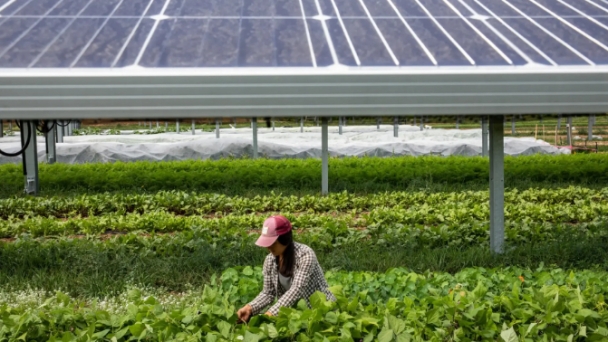
(VAN) Agrivoltaics combines solar energy and agriculture, enhancing land productivity and addressing climate change while ensuring food security.
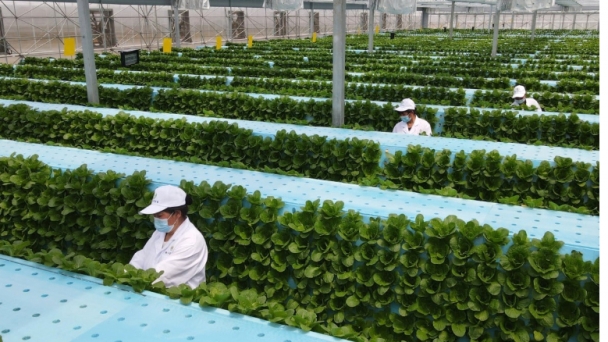
(VAN) China has reduced fertiliser use for eight consecutive years since 2015 and yet the country's agricultural output has steadily increased with 2024 grain production hitting a historic high.

(VAN) Equatic is among a wave of start-ups exploring how the ocean could be harnessed to capture and store carbon. But not everyone is sure it's such a good idea.
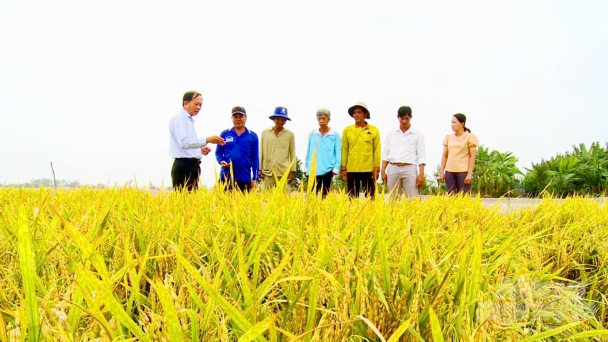
(VAN) An Giang has over 300,000 farmers directly engaged in rice production and 229 cooperatives playing a pivotal role in the implementation of the One Million Hectares of High-Quality Rice Project.